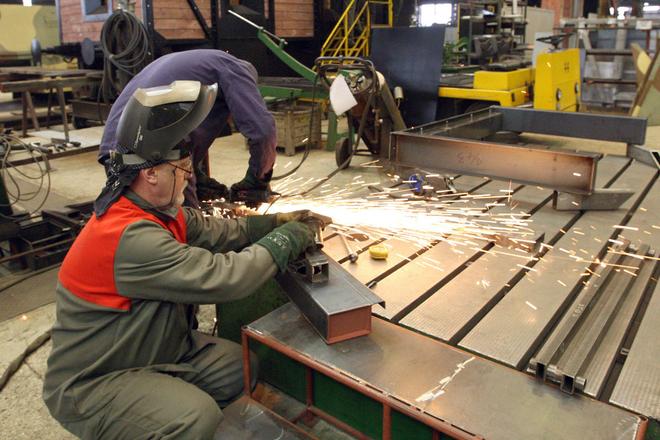Foreign investors in Slovakia are optimistic planning to invest and increase their labour force, but results of elections and coalition talks have left them concerned. These are the main outcomes of a regular survey conducted by foreign chambers in Slovakia.
“Most companies still perceived the general economic development of Slovakia with some doubts, but many companies also want to invest intensively and increase their labour force,” Vladimír Slezák, president of the Slovak-German Trade and Industry Chamber (SNOPK) said when presenting results of the annual survey. “The last time surveys gave such results was before the financial crisis in 2009.”
Three out of 10 surveyed companies evaluate the current economic developments as positive, which is the best result since 2009. Another 60 percent see them as satisfactory. Forty percent of companies would like to increase investments as well as the number of their employees while one-third of companies expect an improvement of the Slovakia’s economic situation later during this year; 57 percent expect stagnation.
What concerns the companies is the political constellation after the March 5 parliamentary election. As much as 42 percent of the surveyed companies see political risk in the creation of an unstable coalition of several political parties and in the strengthened influence of right wing extremists.
Martin Reguli, analyst from the F. A. Hayek Foundation, explained that the coalition that resulted from the election is actually Slovak-Hungarian and conservative-social.
“One can be afraid that these streams will go against themselves and will weaken the stability of the government in those key questions on which they were not able to agree before the election,” said Reguli during a discussion at the TA3 news channel, adding that the consequence is concerns that this government might fall and be replaced by a one formed from more populist parties. Such parties have proposed, for example, special taxes for banks or wealthy companies but also by economic nationalism what is in the end harmful for companies as well as consumers.
Some 46 percent of the respondents expect that the political development will reflect negatively in their economic situation.
“The new government will have to work to gain trust in the economic sphere,” said Slezák.
Large industrial companies with more than 250 employees are the most hungry for investment and hiring when as much as 70 percent of them want to expend their production or recruit new workers. The interest focuses on the automotive industry and the planned arrival of British Jaguar Land Rover is drawing new subcontractors to Slovakia.
Industrial companies employ about one-quarter of all the employed, Vladimír Vaňo, head of CEE research at Sberbank Europe, recalled for the Hospodárske Noviny daily.
“Industry is and will remain during the near future the biggest employer in Slovakia,” said Vaňo, adding that this is why there is also space for the creation of new jobs.
Labour force is a problem
Slovakia remains to be an attractive locality for investments in central and eastern Europe in surveys, while only the Czech Republic places better. Poland and Estonia remain the third and fourth most attractive countries. Investors list as the main advantages of Slovakia as EU membership, productive labour force for relatively favourable costs and accessibility and quality of local suppliers.
“Due to geographical closeness and a generally attractive locality many Austrian companies, especially from neighbouring federal states, perceive Slovakia as an extended domestic market,” said Stephan Gebeshuber, commercial counsellor at the Austrian Embassy in Bratislava and the head of Advantage Austria Bratislava.
Compared to previous years companies evaluate the qualification and availability of employees as much worse.
“It shows that Slovakia is used to living from its past advantages,” said Slezák. “Urgent problems with the education system are bringing to boil the problems of many companies with finding qualified young people.”
Based on the survey, the availability of qualified staff has reached a critical level while the companies praise the launch of the dual education.
“The survey clearly shows that the new education minister has further support development of this scheme,” said Slezák.
SNOPK, the trade department of the Austrian Embassy in Bratislava, the Netherlands Chamber of Commerce in the Slovak Republic, the Swedish Chamber of Commerce in Slovakia, the Slovak-Austrian Chamber of Commerce and the Italian-Slovak Chamber of Commerce surveyed 166 local companies of which 84 percent have owners in other European countries in February. Most of the surveyed companies (49.7 percent) operate in industry followed by trade (21 percent) and services (29.3 percent).



 Illustrative stock photo (source: Sme)
Illustrative stock photo (source: Sme)